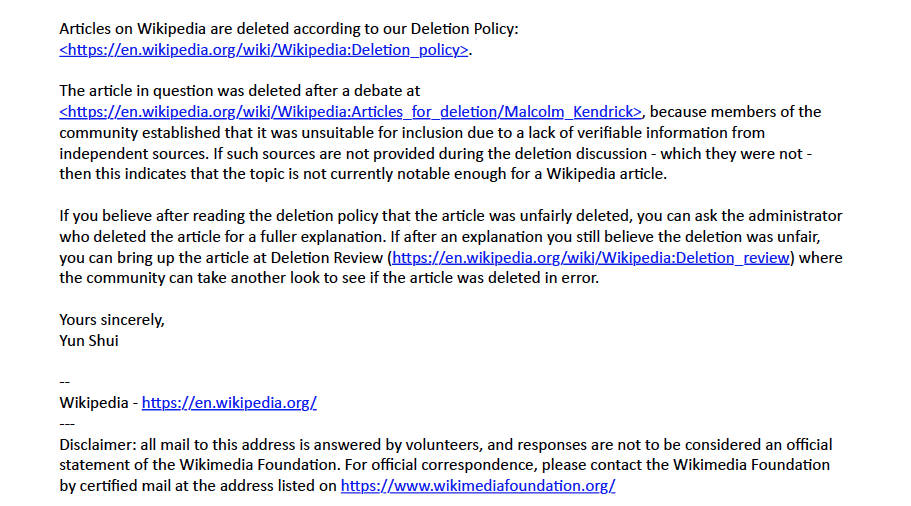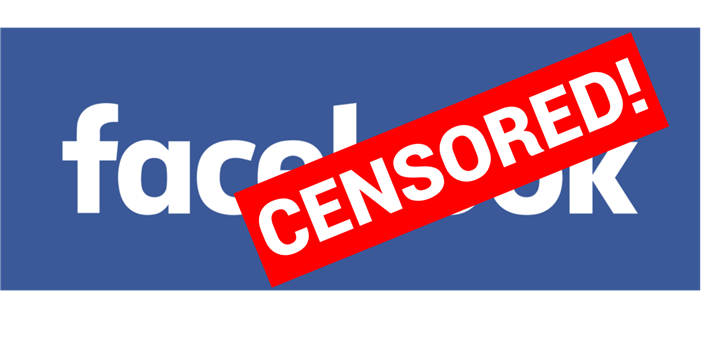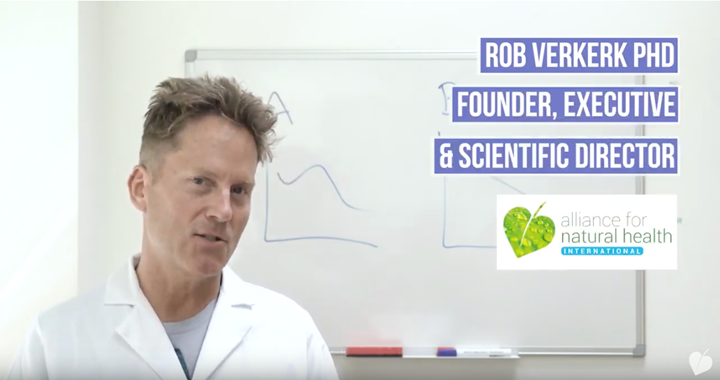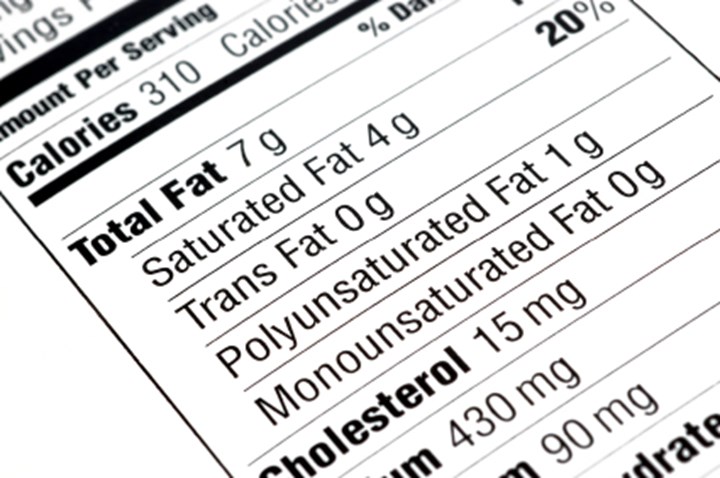Content Sections
Multilingual, web-based, free encyclopaedia, Wikipedia, has become a trusted source of information on the Internet since its launch in 2001. Often the primary ‘go-to’ source for many, it’s been known for specialising in coverage of controversial and somewhat obscure topics that challenge the status quo. Wikipedia has also been proud of its unique approach to content, seeing as it’s the product of millions of editors' contributions — a community of editors if you like. Whether the skills be in research, technical expertise, writing prowess or merely tidbits of information, Wikipedia prides itself on its editors’ willingness to help. However, all this goodwill is now at risk.
Whilst Wikipedia’s free licence editing policy has put a large tick in the freedom of speech box to date, it also leaves itself wide open to abuse from those with less laudable agendas. Unfortunately, individuals and organised groups, such as anti-natural health skeptics, appear to have been able to infiltrate the editorial community and use this free licence to delete and edit content related to scientific views that do not align with their own views and/or biases.
Introducing ‘deletionism’
We believe that organised skeptic groups are actively targeting Wikipedia articles that promote natural, non-drug therapies with which they disagree. Right in their cross-hairs is content that contests mainstream healthcare's cherished, but deeply flawed (in our and many others' views) 'calorie in, calorie out' theory of obesity and the cholesterol (or lipid) hypothesis relating to heart disease. The new trick of these editors is to rewrite or entirely remove pertinent information from such articles or, worse still, delete entire articles altogether.
Selected for attack
One such recent victim of Wikipedia’s deletionism is Scottish diabetes expert, Dr Malcolm Kendrick. Run a Wikipedia search for Dr Kendrick and you’ll no longer find him because his page has been deleted by a self-styled anonymous ‘expert’. Why? Because his views on the cholesterol hypothesis didn’t match up with those of said self-styled anonymous ‘expert’. Not content with removing the entry on Dr Kendrick, it’s now a matter of time before the same fate befalls The International Network of Cholesterol Skeptics and Dr Kendrick’s ‘co-conspirator’ Uffe Ravnskov.
Not everyone suffers the ignominy of deletion though. Other articles are taken-over and rewritten to take the sheen off the main facts and reframe them in a poor light. Affected pages include those of key figures in the natural health world who purport non-conventional, non-mainstream views and approaches, like Rupert Sheldrake, Dr Assem Malhotra, Joseph Mercola or Nina Teicholz, the latter whose page is littered with evidence where successive accounts that have been banned from re-editing changes to the page!
If you have type 2 diabetes, or know someone who has, and you were planning to go to the Diabetes page on Wikipedia to find out more about natural drug-free ways to restore metabolic function, don’t bother. ‘Skeptic from Britain’ has been there already and very 'kindly' removed all reference to the efficacy of low carbohydrate diets in tackling type 2 diabetes lest you be led down the garden path by a bunch of quacks.
Being left in the long grass
Contrasting sharply with the victims of rampant slash and burn editing and deletionism, is the prevalent and active boosting of entries that support self-confessed skeptics or groups. Here are a few examples:
For clarity, we’re not suggesting for a minute that Wikipedia censor The Good Thinking Society, Gorski, Quackwatch or any of the other overtly skeptic pages. On the contrary, we believe passionately in freedom of speech – particularly free speech in science. However, in our view it’s entirely wrong – and it reflects an insidious bias that has been growing in strength in Wikipedia – to persist with censorship of information on accurate cholesterol science, low carb high fat (LCHF) diets and other natural and non-pharmaceutical, validated approaches to managing or treating chronic diseases.
Against censorship? Take action!
If you've been on Wikipedia of late, you'll notice there's a call for donations.
Well, let the money talk. If you were considering donating...our advice: DON'T!
Also, while Wikipedia won't entertain "disagreements with content", please write to Wikipedia at info-en@wikimedia.org and tell them you strongly disagree with restrictions of freedom of speech and 'deletionism' in emerging areas of nutritional science and natural medicine.
And/or you could contribute to a lower 'hit' rate on Wikipedia, and rely on other sources of information from the Internet.
20/12/18 - article update
One of our readers has very kindly agreed to share the email he sent to Wikipedia after reading our article and their subsequent response (click on the image for the full email trail).









Comments
your voice counts
13 December 2018 at 2:33 am
Wikipedia also censors New Thought spirituality and New Age pages as well. I found plenty of evidence of this when reviewing my Church's listing online. The commentators -- more than one of them -- acted as if we were just an online scam outfit because they found our online store. We are THE premier New Age church, started by Elizabeth Clare Prophet in 1975, Additionally, we have physical locations all over the world, and even a settlement of devotees. I couldn't believe it, when I read it, but: it was certainly problematic. We have since developed our own online information (similar to Wikipedia); however, the notion that we are not "authentic" is outrageous. The other effort has been to attempt to restrict Wikipedia contributions to people OTHER THAN Church members. We were told that we were "too biased" about the organization to comment upon it ourselves. This is outrageous. We KNOW who we are and our history, and it is up to US to articulate those Truths, not random baiters. It's --- a big problem, and I would like to help ANH in their effort, too.
13 December 2018 at 8:54 am
Sadly. data in wiki is controlled by Big Pharma, Food and Biotech's 'writers' not by individual sceptics. Sadly too, most believe Wiki to be The Best (honest), Up-to-date, Alternative Data source..If it's not in Wiki, they'll assume it's folklore, conspiracy theory ect. The fake RDAs, Food Groups, etc in wiki deliberately mislead the trusting public. When not deleted, as the medically confirmed cancer etc cures from the energies in the Bosnian Pyramids, these are deemed as conspiracy theories, lies etc. in the wiki write up.
13 December 2018 at 10:04 am
This is understating the extent of the issue. Wikipedia founder Jimmy Wales has strong anti-natural-health views, and once described energy psychology practitioners as 'lunatic charlatans.' Some complained to him about not being permitted to edit a Wikipedia page on the topic.
I just opened the Wikipedia page on functional medicine, which is a part of the 'Alternative medicine, quackery and medical conspiracy theories' series. Judging from the extent of the bias, it is obvious that functional medicine is a threat to someone. It certainly violates Wikipedia's neutrality principles.
Wikipedia categorises criticism of water fluoridation and vaccination under its 'medical conspiracy theories' section.
It's possible that Jimmy Wales' own views are guiding this bias as much as pharma shills and employees of the mainstream medical community. I don't know the answer to this.
If you want to make a more pointed complaint, the best email address to use is [email protected] This can result in a response.
13 December 2018 at 1:33 pm
The pseudo-skeptics work much in the same way as communist insurgency of the '50.
Apparently independent groups often with opaque funding, but sometimes directly or indirectly funded by Pharma, plus a lot of kids and students and hobbyists.
They use Alinsky's Rules, and dominate with noisy propaganda & expert trolling.
They very much subscribe to the the "slow march through the institutions" (Rudi Dutschke, Antinio Gramsci), and will attempt to get their placemen into school and university education and regulatory authorities (such as NICE, MHRA, and NHSE). Not to mention scientific and technical committees. And getting their opponents fired.
They are expert in propaganda techniques (such as Delphi technique hijacking) and infiltration.
Trolling keeps their sole view in the public eye, so it settles into natural thought the "everyone knows". http://blogs.iac.gatech.edu/yadystopia2017/2017/03/13/cognitive-ease-and-propaganda/
And only someone relatively expert in counter-propaganda can challenge them without getting sucked in.
They are strong on.spotting fallacies, except their own: - they most often adhere to what I call the "pseudo-skeptic fallacy", argumentum ad ignorantium, the argument from what is not known: the incorrect implication that absence of perceived evidence for effect somehow implies evidence of absence of effect.
What is more, they behave like schoolyard bullies, believing they are superior in intellect an entitled to do so. They push what they call "critical thinking"- which.is somehow never critical of pharma, whereas what they really do is uncritical "follow-my-leader thinking". - whereas their leaders are untrustworthy conjurers (experts in misdirection) and journalists, pharma ghost-writers and such.
We desperately need a well-organised counter-insurgency effort.
See "guerilla skeptics"
http://www.skepticalaboutskeptics.org/investigating-skeptics/wikipedia-captured-by-skeptics/
https://www.sheldrake.org/reactions/wikipedia
https://rationalwiki.org/wiki/Guerrilla_Skepticism_on_Wikipedia
19 December 2018 at 2:32 pm
Here's my detailed analysis of how Wikipedia provides misinformation on homeopathic medicine:
https://www.huffpost.com/entry/dysfunction-at-wikipedia_b_5924226
Wikipedia has also systemically deleted biographies of famous homeopaths, past and present, including myself.
22 December 2018 at 3:02 am
Skeptic from Britain is Abd ul-Rahman Lomax. He has a history of trolling wikis and attacking people with different points of view. He has closed his account so he will no longer be active on Wikipedia.
https://rationalwiki.org/wiki/Abd_ul-Rahman_Lomax
https://encyclopediadramatica.rs/Abd_Ul-Rahman_Lomax
Your voice counts
We welcome your comments and are very interested in your point of view, but we ask that you keep them relevant to the article, that they be civil and without commercial links. All comments are moderated prior to being published. We reserve the right to edit or not publish comments that we consider abusive or offensive.
There is extra content here from a third party provider. You will be unable to see this content unless you agree to allow Content Cookies. Cookie Preferences